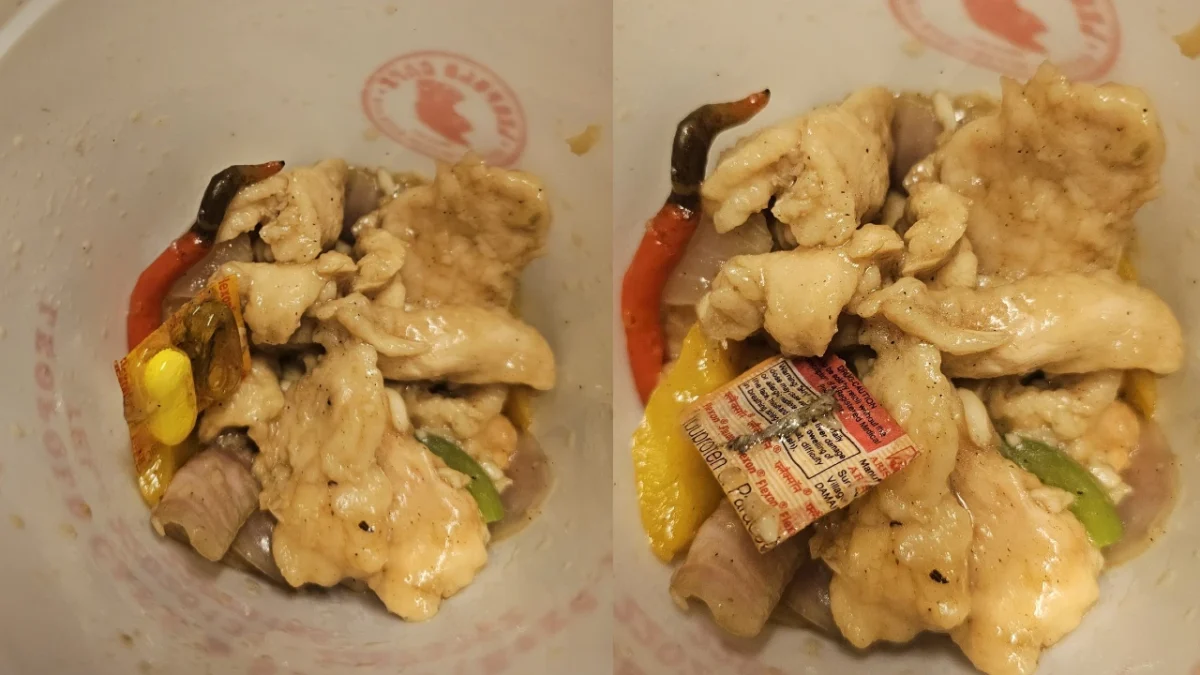In a recent incident that has raised concerns over food safety and quality control, popular food delivery platform Swiggy found itself in the midst of a controversy. A customer in Mumbai had a rather unpleasant experience when he discovered medicine in his order from a local restaurant, an incident that has prompted Swiggy to issue an apology.
Ujwal Puri, a resident of Mumbai, placed an order for chicken in oyster sauce from a restaurant in the city on Christmas Eve, looking forward to a festive meal.
My Mumbai Christmas Surprise ordered food from Swiggy from Leopold Colaba got this half cooked medicine in my food @Swiggy pic.twitter.com/ZKU30LzDhi
— Ujwal Puri // ompsyram.eth 🦉 (@ompsyram) December 24, 2023
However, the occasion turned sour when he found what he described as ‘half-cooked medicine’ mixed in with his food. This unexpected and distressing discovery left him feeling disgusted, turning what should have been a joyous holiday meal into an unsettling experience.
Taking to social media platform X, Ujwal Puri shared pictures and a video of the unwelcome ‘Christmas surprise’ in his Swiggy order. The visual evidence of the medicine in his meal quickly caught the attention of other users.
It sparking discussions and concerns about food safety standards and practices in restaurant kitchens and delivery services.
Reacting to the customer’s complaint, Swiggy promptly addressed the issue on social media. The company expressed disappointment over the incident, stating that they expect better standards from their restaurant partners. Swiggy’s response reflected their commitment to customer satisfaction and food safety, emphasizing that such incidents are taken seriously and that appropriate measures are expected to be upheld by their associated restaurants.
This incident brings to light the critical importance of maintaining stringent food safety standards, especially in the context of food delivery services where direct supervision by customers is not possible.
It underscores the need for restaurants and delivery platforms to enforce strict quality control measures to ensure that such incidents do not recur.
